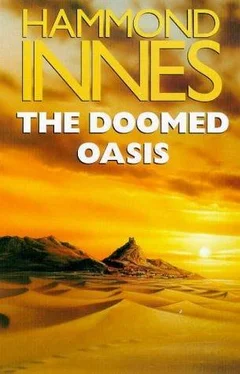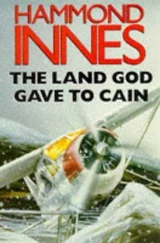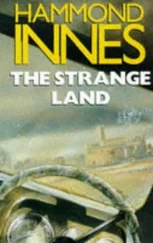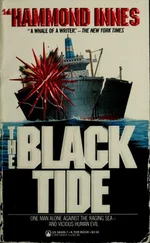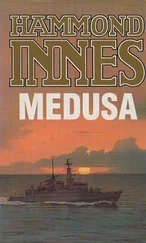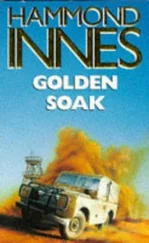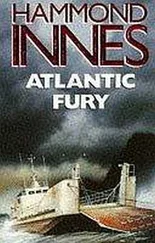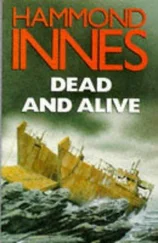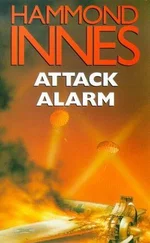Hammond Innes - The Doomed Oasis
Здесь есть возможность читать онлайн «Hammond Innes - The Doomed Oasis» весь текст электронной книги совершенно бесплатно (целиком полную версию без сокращений). В некоторых случаях можно слушать аудио, скачать через торрент в формате fb2 и присутствует краткое содержание. Жанр: Прочие приключения, на английском языке. Описание произведения, (предисловие) а так же отзывы посетителей доступны на портале библиотеки ЛибКат.
- Название:The Doomed Oasis
- Автор:
- Жанр:
- Год:неизвестен
- ISBN:нет данных
- Рейтинг книги:5 / 5. Голосов: 2
-
Избранное:Добавить в избранное
- Отзывы:
-
Ваша оценка:
- 100
- 1
- 2
- 3
- 4
- 5
The Doomed Oasis: краткое содержание, описание и аннотация
Предлагаем к чтению аннотацию, описание, краткое содержание или предисловие (зависит от того, что написал сам автор книги «The Doomed Oasis»). Если вы не нашли необходимую информацию о книге — напишите в комментариях, мы постараемся отыскать её.
The Doomed Oasis — читать онлайн бесплатно полную книгу (весь текст) целиком
Ниже представлен текст книги, разбитый по страницам. Система сохранения места последней прочитанной страницы, позволяет с удобством читать онлайн бесплатно книгу «The Doomed Oasis», без необходимости каждый раз заново искать на чём Вы остановились. Поставьте закладку, и сможете в любой момент перейти на страницу, на которой закончили чтение.
Интервал:
Закладка:
‘Saraifa,’ he said. ‘I’ll know the worst then.’ I think he could already picture the misery that awaited us.
Halfway there we met with a family of the Junuba heading towards the mountains with a long string of camels loaded with dates for the coast. They gave us the news. The last falaj had ceased to flow that morning. Sheikh Makhmud was said to have died during the night. His brother, Sheikh Sultan, ruled in his place. We purchased some dates from them — we had been unable to buy any supplies in Dhaid — and hurried on.
All the way to Saraifa the traces of disaster were with us, the carcase of a camel, a body sprawled in the sand, discarded arms. But according to the Junuba, the Emir’s men were not in the oasis. ‘They don’t need to attack now,’ David said. ‘They can sit on the falajes they’ve destroyed and just wait for the end, like vultures waiting for a man to die.’ And he added, ‘Sheikh Sultan will make peace. He’s a gutless, effeminate old man, and they know it.’
The wind increased in force until it was blowing a strong shamal and we never saw Saraifa until the crumbling walls of a date garden appeared abruptly out of the miasma clouds of wind-blown sand. The palms thrashed in the blinding air as they closed around us.
We passed a patch of cultivation, the green crop already wilted and turning sere. And when we reached the first shireeya, we found it dry, the mud bottom hard as concrete, split with innumerable cracks. The falaj channel that supplied it was empty. The skeletal shape of little fish lay in the sand at the bottom of it.
Only when we came to the outskirts of Saraifa itself was there any sign of human activity. Camels were being loaded, household possessions picked over. But most of the barastis were already empty, the human life gone from them. Men stopped to talk to us, but only momentarily. They were bent on flight.
It was the same when we reached the mud buildings in the centre of Saraifa. Everywhere there were beasts being ‘ loaded. But it was the tail-end of the exodus, most of the houses already deserted. And in the great square under the palace walls, the watering place no longer delivered its precious fluid to a noisy crowd of boys with their asses; the ground round it was caked hard and the only person there was an old man with a child of about two.
We circled the walls and came to the main gate. The great wooden portals were closed. No retainers stood guard on the bastions above. The palace had the look of a place shut against the plague and given over to despair. David sat for a moment on his camel, looking down on the date gardens half-hidden beneath the weight of driven sand, and tears were streaming down his face. He turned to me suddenly and swore an oath, demanding that the Almighty should be his witness — and the oath was the destruction of Hadd. ‘Khalid is dead,’ he added, and his eyes burned in their sockets. ‘Now I must do what he’d have done, and I’ll not rest till the falajes are running again — not only the five they’ve destroyed, but the others, too. That I swear, before Almighty God, or my life is worth nothing.’
We rode out of Saraifa then, leaving behind us the pitiful sight of a people driven from their homes by thirst, heading into the desert, our heads bent against the wind, our mouths covered. Once David paused, his arm flung out, pointing. ‘Now you see it. Now you see the Rub al Khali rolling in like the sea.’ And indeed it did look like the sea, for through gaps in the flying curtain of sand I could see the dunes smoking like waves in the gusts, the sand blowing off their tops in streamers. ‘That’s what Khalid was fighting. Like water, isn’t it? Like water flooding in over a low-lying land.’ And riding on, he said, ‘With the people gone, the wells all dry … this place won’t last long.‘His words came in snatches on the wind. ‘How long will they survive, do you think — those families hurrying to go? They’re not nomads. They can’t live in the Sands. They’ll die by slow degrees, turned away by sheikh after sheikh who fears they and their beasts will drink his own people out of water. And what can they live on when their camels are gone?’
He was riding close beside me then. ‘Sometimes I hate the human race … hate myself, too, for being human and as cruel as the rest.’ And then quietly, his teeth clenched, his eyes blazing: ‘There’ll be men die in Hadd for what I’ve seen today.’
It was the strange choice of words, the way he was trembling and the violence of his manner; I thought he’d been driven half out of his mind by Khalid’s death and the tragic things we’d seen. ‘All I need is a few men,’ he whispered to me. ‘Khalid’s are all dead. Half a dozen men, that’s all I need.’
The sun’s heat increased and the wind gradually died. I suffered badly from thirst for we hadn’t much water left and we were riding fast. Towards midday, in a flat gravel pan between high dunes, we came upon the tracks of heavy vehicles. We followed them and shortly afterwards heard the roar of diesels. It was the drilling rig, both trucks floundering in a patch of soft sand. The big eight-wheeler was out in front, the rig folded down across its back, and it was winching the second truck, loaded with pipe and fuel drums, across the soft patch.
They were working with furious energy, for they’d had refugees from Saraifa through their camp just before they’d pulled out, and they were scared. We stopped with them long enough to brew coffee and give our beasts a rest, and when we rode on David said to me, ‘Why’s he want to bring that rig here now? What good will it do?’ He was haggard-eyed, his face pale under its tan. ‘They told me he’d requisitioned Entwhistle’s seismological outfit — the men as well as the truck. He did that just after the battle, when he knew what had happened. I don’t understand it. He must realize it’s too late now … ‘
The shadows of the dunes were lengthening, their crests sharp-etched against the flaming sky. We were working our way across them then and as the sun finally sank, we came to the top of a dune, out of the shadow into the lurid light of the blood-red sunset, and in the gravel flat below we saw the tracks of vehicles and the blackened circles of camp fires. ‘Location B,’ David said and we rode down into shadow again.
The camp had been abandoned that morning. So much Salim was able to tell us from the ashes of the camp fires, and after that we kept just below the dune crests, riding cautiously with Ali scouting ahead.
We’d only just lost sight of the abandoned camp when the thud of an explosion shook the ground, and the sands on the steep face of a dune opposite slid into motion with a peculiar thrumming, singing sound. Our camels stood halted, their bodies trembling, and the singing sound of the sands went on for a long time. There was no further explosion. But almost as soon as we started forwards again, Ali called to us and at the same moment there was the crack of a rifle and a bullet sang uncomfortably close.
I don’t remember dismounting. I was suddenly stretched on the sand with Salim pulling my camel down beside me. David and Hamid were crawling forward to the dune crest, their guns ready. I thought for a moment we had been ambushed. But then Ali shouted a greeting. He had dropped his rifle and was standing up, throwing sand into the air. It was the Bedou sign that we came in friendship, and in a moment we were dragging our camels down the steep face of the dune and three Arabs were running to meet us, brandishing their weapons and shouting.
We had reached Colonel Whitaker’s camp at Location C.
The tents were huddled against the base of a dune, black shapes in the fading light, and out on the gravel flat, Entwhistle’s seismological truck stood lit by the glow of cooking fires. There were perhaps fifteen men in that camp and they flitted towards us like bats in the dusk. As they crowded round us, one of them recognized David. All was confusion then, a babel of tongues asking questions, demanding news.
Читать дальшеИнтервал:
Закладка:
Похожие книги на «The Doomed Oasis»
Представляем Вашему вниманию похожие книги на «The Doomed Oasis» списком для выбора. Мы отобрали схожую по названию и смыслу литературу в надежде предоставить читателям больше вариантов отыскать новые, интересные, ещё непрочитанные произведения.
Обсуждение, отзывы о книге «The Doomed Oasis» и просто собственные мнения читателей. Оставьте ваши комментарии, напишите, что Вы думаете о произведении, его смысле или главных героях. Укажите что конкретно понравилось, а что нет, и почему Вы так считаете.
